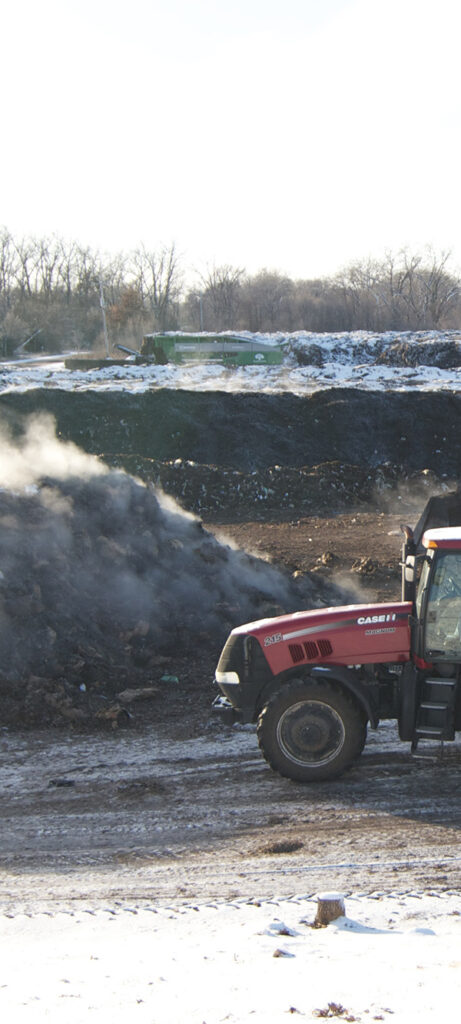solid waste 101

Compost
Composting recycles organic materials, such as grass clippings, leaves, and food scraps, into a crumbly, nutrient-rich material called humus or compost. Microbes, including bacteria and fungi, break down complex organic compounds into simpler substances that can be absorbed by plants. Heat generated by the decomposition process in a well-managed composting system can destroy disease-causing organisms and weed seeds.
The U.S. Environmental Protection Agency estimated that food scraps and yard waste comprised approximately 34% of solid waste disposed of in the United States as of 2018. These biodegradable materials take up considerable space when deposited in landfills, where they also contribute to global warming by releasing methane.
Backyard compost piles have been a fixture for rural residents and suburban gardeners for decades, and still provide an excellent way for residents to reduce their contributions to the waste stream. Larger scale composting at municipal or commercial scales has evolved in response to increasing concerns about landfill capacity and climate change.
New Hampshire law bans disposal of yard debris in landfills and incinerators. Some municipalities provide seasonal curb-side collection services, and others have locations for composting leaves, brush, and Christmas trees at the local transfer station. Some New England municipalities maintain composting sites at their local transfer stations or at separate facilities. A few commercial composting businesses accept organic materials from local citizens (e.g., Vermont Compost, Green Mountain Compost).
Resources
Composting at Home (EPA)
Organics Bans & Mandates (US Composting Council)
Cornell Composting Science & Engineering
The State of Composting in the US (BioCycle)
Solid Waste Management: Refuse Reduction (2021 New Hampshire Revised Statutes)
Stay in Touch
Join our email list to stay on top of the latest news on sustainable solid waste management, including action alerts for ways you can make your voice heard!
